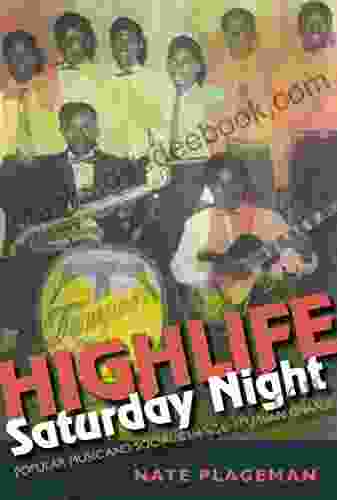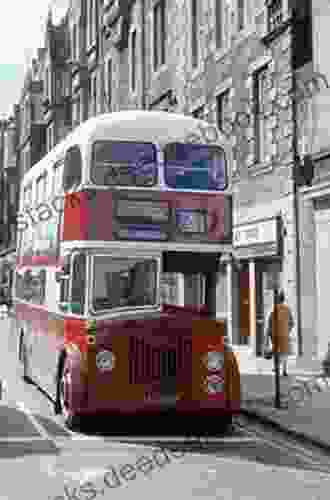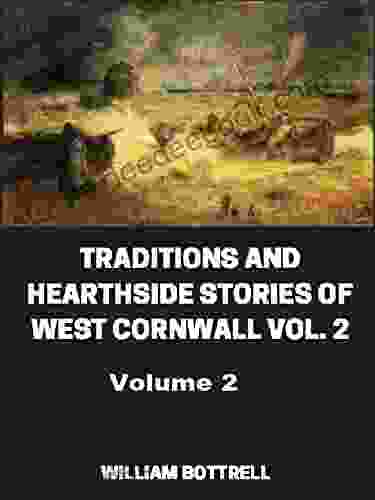Popular Music and Social Change in Urban Ghana: African Expressive Cultures

4.8 out of 5
| Language | : | English |
| File size | : | 4946 KB |
| Text-to-Speech | : | Enabled |
| Enhanced typesetting | : | Enabled |
| Word Wise | : | Enabled |
| Print length | : | 336 pages |
| Lending | : | Enabled |
| Screen Reader | : | Supported |
Music has always played an important role in African societies. It has been used to mark important events, celebrate achievements, and mourn losses. Music has also been used to tell stories, teach lessons, and communicate messages. In recent years, popular music has become an increasingly powerful force for social change in urban Ghana.
Ghana has a rich and diverse musical tradition. The country is home to a wide variety of musical genres, including highlife, hiplife, and gospel. These genres have been used to express a wide range of emotions and experiences, from joy and love to sorrow and pain. In the 1960s and 1970s, highlife music became a symbol of Ghana's independence and unity. Bands like E.T. Mensah and His Tempos and the Black Beats used their music to celebrate Ghana's newfound freedom and to promote African culture.
In the 1980s and 1990s, hiplife music emerged as a new force in Ghanaian popular culture. Hiplife is a fusion of Ghanaian highlife with American hip-hop. Hiplife artists like Reggie Rockstone and Obrafour used their music to speak out against political oppression and social injustice. They also used their music to promote cultural identity and to foster community development.
Today, popular music continues to play an important role in Ghanaian society. Music is used to entertain, educate, and inspire. It is also used to challenge the status quo and to promote social change. Some of the most popular Ghanaian musicians today include Sarkodie, Shatta Wale, and Stonebwoy. These artists use their music to address a wide range of social issues, including poverty, inequality, and corruption.
The rise of popular music in Ghana has had a number of positive effects on the country. Music has helped to create a sense of national identity and to promote cultural understanding. It has also helped to raise awareness of social issues and to encourage people to get involved in their communities. However, the music industry in Ghana faces a number of challenges. These challenges include piracy, lack of funding, and limited access to distribution channels.
Despite these challenges, the future of popular music in Ghana is bright. Music is a powerful force for change, and it has the potential to continue to make a positive impact on Ghanaian society. By supporting the music industry and encouraging musicians to use their voices for good, we can help to create a more just and equitable world.
Examples of Popular Music and Social Change in Urban Ghana
Here are some specific examples of how popular music has been used to promote social change in urban Ghana:
- In the 1960s and 1970s, highlife music was used to celebrate Ghana's independence and to promote African culture.
- In the 1980s and 1990s, hiplife music was used to speak out against political oppression and social injustice.
- Today, popular Ghanaian musicians like Sarkodie, Shatta Wale, and Stonebwoy use their music to address a wide range of social issues, including poverty, inequality, and corruption.
These are just a few examples of how popular music has been used to promote social change in urban Ghana. Music is a powerful force for change, and it has the potential to continue to make a positive impact on Ghanaian society.
Popular music has played a major role in shaping social change in urban Ghana. Music has been used to challenge political oppression, promote cultural identity, and foster community development. The music industry in Ghana faces a number of challenges, but the future of popular music in the country is bright. Music is a powerful force for change, and it has the potential to continue to make a positive impact on Ghanaian society.
4.8 out of 5
| Language | : | English |
| File size | : | 4946 KB |
| Text-to-Speech | : | Enabled |
| Enhanced typesetting | : | Enabled |
| Word Wise | : | Enabled |
| Print length | : | 336 pages |
| Lending | : | Enabled |
| Screen Reader | : | Supported |
Do you want to contribute by writing guest posts on this blog?
Please contact us and send us a resume of previous articles that you have written.
 Book
Book Novel
Novel Page
Page Chapter
Chapter Text
Text Genre
Genre Library
Library Paperback
Paperback E-book
E-book Paragraph
Paragraph Glossary
Glossary Bibliography
Bibliography Preface
Preface Annotation
Annotation Footnote
Footnote Manuscript
Manuscript Codex
Codex Tome
Tome Classics
Classics Biography
Biography Memoir
Memoir Encyclopedia
Encyclopedia Dictionary
Dictionary Resolution
Resolution Librarian
Librarian Card Catalog
Card Catalog Stacks
Stacks Research
Research Scholarly
Scholarly Lending
Lending Reserve
Reserve Journals
Journals Reading Room
Reading Room Special Collections
Special Collections Literacy
Literacy Study Group
Study Group Dissertation
Dissertation Awards
Awards Theory
Theory Textbooks
Textbooks Nate Plageman
Nate Plageman John Lindley
John Lindley Christopher Ward
Christopher Ward Arnab Biswas
Arnab Biswas Dennis Chong
Dennis Chong Anna Hrachovec
Anna Hrachovec Ryunosuke Koike
Ryunosuke Koike David Cox
David Cox Steven Gerrard
Steven Gerrard Richard Knott
Richard Knott Mandy Concepcion
Mandy Concepcion Emilio J Becker
Emilio J Becker John Gastil
John Gastil Ken Martin
Ken Martin Chris Townsend
Chris Townsend John Farndon
John Farndon Donna Douglas
Donna Douglas Jessica Dayon
Jessica Dayon Roy R Luna
Roy R Luna Ila France Porcher
Ila France Porcher
Light bulbAdvertise smarter! Our strategic ad space ensures maximum exposure. Reserve your spot today!
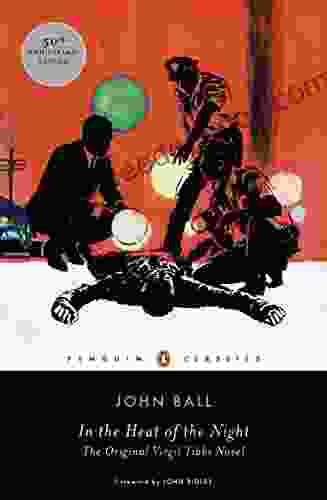
 Carlos FuentesThe Original Virgil Tibbs Novel: A Journey into Justice and Redemption in...
Carlos FuentesThe Original Virgil Tibbs Novel: A Journey into Justice and Redemption in... Alvin BellFollow ·9.5k
Alvin BellFollow ·9.5k Frank ButlerFollow ·16.6k
Frank ButlerFollow ·16.6k Yasunari KawabataFollow ·15.5k
Yasunari KawabataFollow ·15.5k Edgar HayesFollow ·9.5k
Edgar HayesFollow ·9.5k Justin BellFollow ·18.9k
Justin BellFollow ·18.9k Nick TurnerFollow ·13.1k
Nick TurnerFollow ·13.1k Wade CoxFollow ·19.7k
Wade CoxFollow ·19.7k Branden SimmonsFollow ·11.2k
Branden SimmonsFollow ·11.2k

 Amir Simmons
Amir SimmonsMore Zeal Than Discretion: A Closer Look at the Risks and...
Enthusiasm is often seen as a positive...
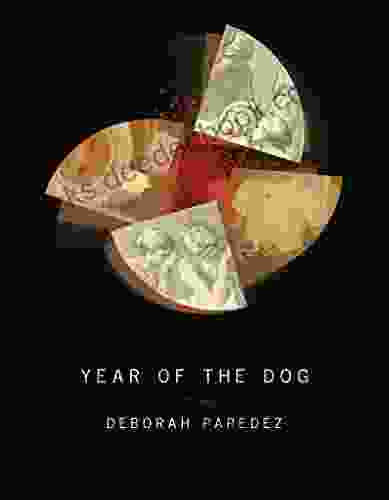
 Wayne Carter
Wayne CarterYear of the Dog: American Poets Continuum 178
Year of the Dog is a...
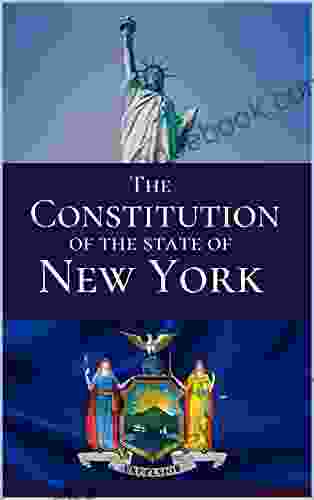
 David Foster Wallace
David Foster WallaceThe Constitution of the State of New York: A...
The Constitution of the...

 Harvey Bell
Harvey BellSmall Cetaceans of Japan: Exploitation and Biology
Small cetaceans, including...

 Blake Bell
Blake BellEffortless Elegance: A Comprehensive Guide to Captivating...
In the realm of crocheting,...
4.8 out of 5
| Language | : | English |
| File size | : | 4946 KB |
| Text-to-Speech | : | Enabled |
| Enhanced typesetting | : | Enabled |
| Word Wise | : | Enabled |
| Print length | : | 336 pages |
| Lending | : | Enabled |
| Screen Reader | : | Supported |


